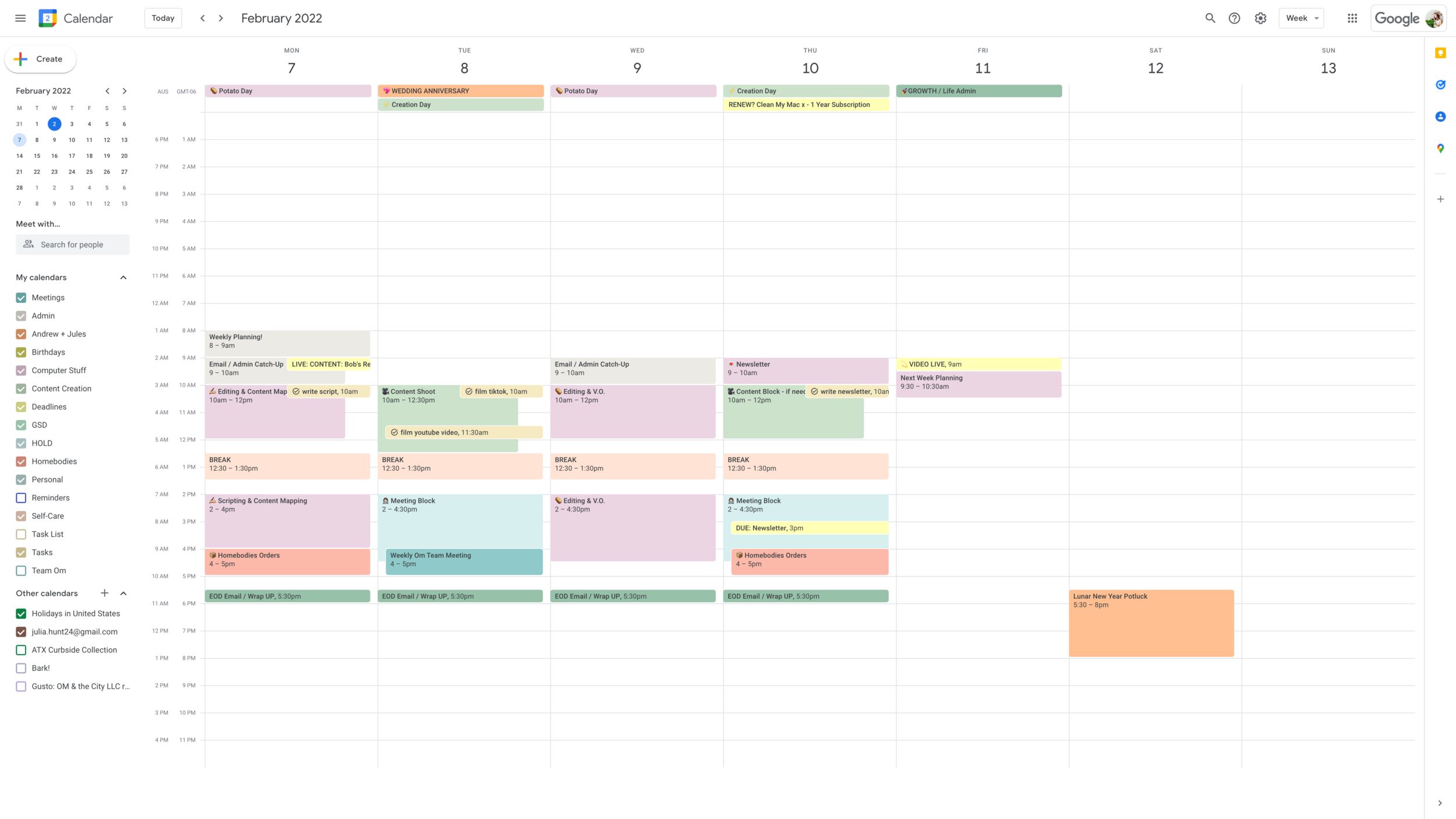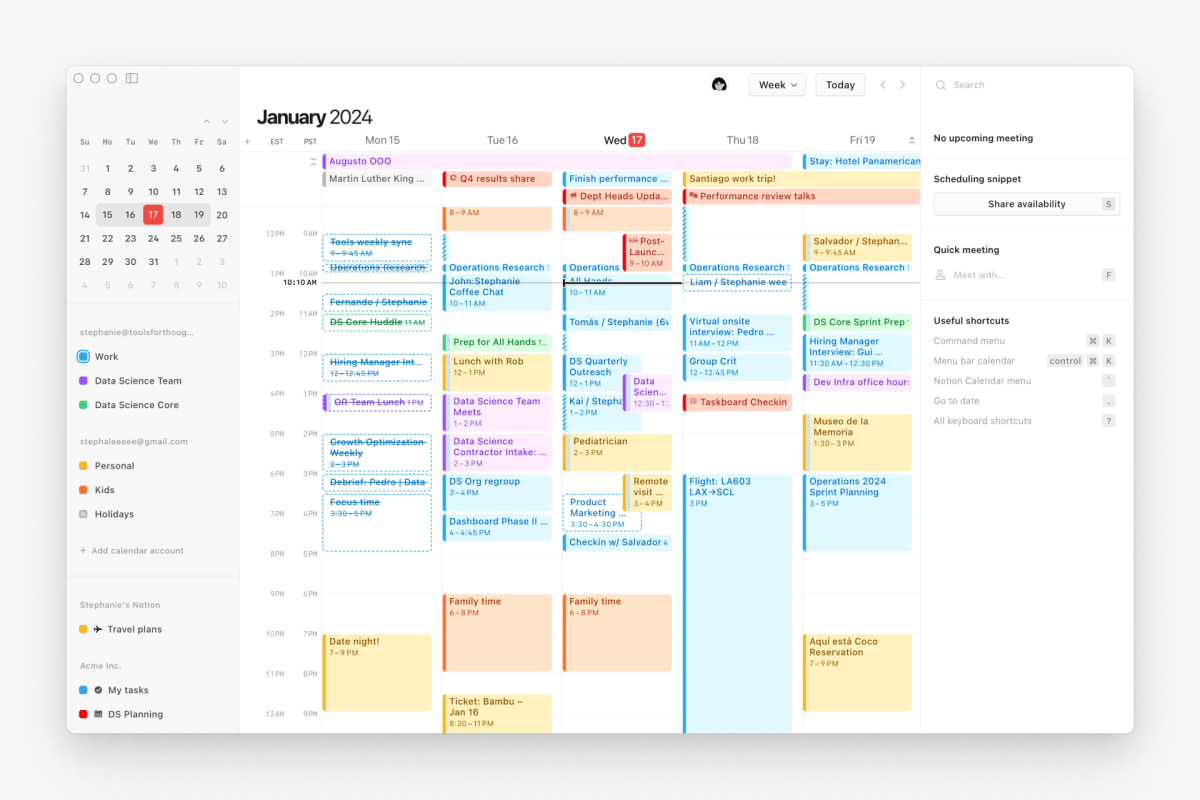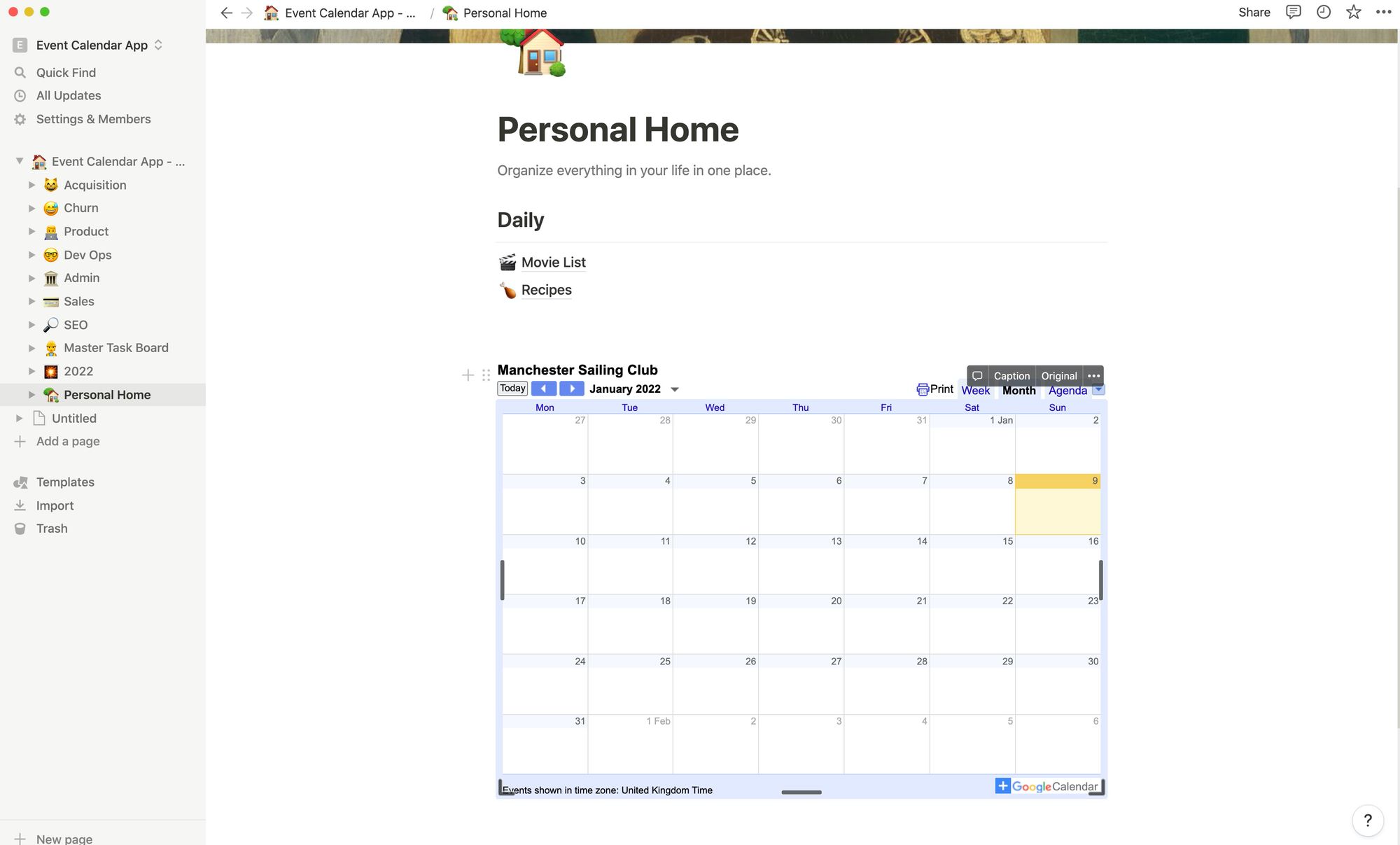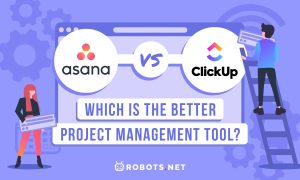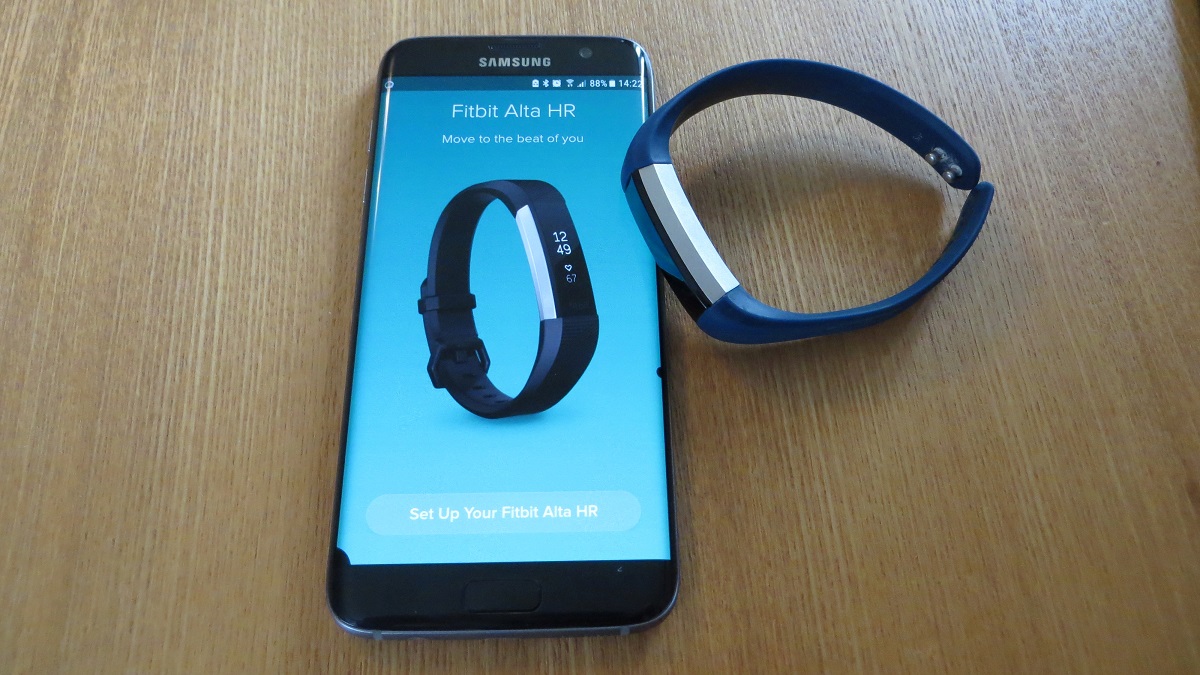Introduction
Welcome to the world of productivity and organization with Google Calendar and Notion. Both of these tools are incredibly popular, with Google Calendar being widely used for scheduling and managing events, and Notion gaining traction as a versatile workspace and note-taking application. By syncing Google Calendar with Notion, you can streamline your workflow, stay organized, and have all your important events and tasks in one place.
In this article, we will explore three methods to sync Google Calendar to Notion. Whether you prefer the native integration offered by Notion, using the Notion Web Clipper extension, or utilizing a third-party integration tool like Zapier or Integromat, we’ve got you covered.
Before we dive into the methods, it’s worth noting that Google Calendar integration is available for Notion’s web and desktop versions. Unfortunately, it is not yet supported on the mobile app. So, make sure you have access to the web or desktop version of Notion to effectively implement the synchronization.
Having a synchronized calendar in Notion can be a game-changer, enabling you to view and manage your Google Calendar events alongside your notes, tasks, and other important information within Notion’s intuitive workspace. Let’s explore the various methods to achieve this integration and choose the one that best suits your needs.
Method 1: Using Notion’s Google Calendar Integration
Notion offers a built-in integration with Google Calendar that allows you to sync your events seamlessly. This method is the most straightforward and requires minimal setup.
Here’s how you can sync Google Calendar with Notion:
- Open Notion in your preferred web browser.
- Create a new page or choose an existing page where you want to add the calendar.
- Click on the “+” button to add a new block.
- Select the “Embed” block option.
- In the “Embed” block, click on the “+ Add an embed” button.
- Search for “Google Calendar” or select it from the list of suggested options.
- Copy the “Embed Code” from Google Calendar. You can find this code by going to your Google Calendar, clicking on the gear icon for settings, selecting “Settings and sharing,” and then navigating to the “Integrate calendar” section.
- Paste the copied embed code into the embed block in Notion.
- Now, you should see your Google Calendar displayed within the Notion page.
By using this method, any changes or updates you make in Google Calendar will automatically reflect in Notion and vice versa. It allows you to view, add, and manage your events without leaving Notion’s workspace.
Note that embedding Google Calendar only provides read-only access within Notion. To make edits or add new events, you’ll need to do so directly in Google Calendar.
This method is ideal if you primarily use Google Calendar for managing your events and want a quick and easy way to view them alongside your Notion notes and tasks.
Method 2: Using Notion’s Web Clipper Extension
If you prefer a more interactive way to sync your Google Calendar with Notion, you can utilize the Notion Web Clipper extension. This method allows you to directly import events from Google Calendar into Notion, giving you greater control and flexibility.
Here’s how you can use the Notion Web Clipper extension to sync Google Calendar:
- Ensure you have the Notion Web Clipper extension installed in your web browser.
- Open Google Calendar in a separate tab or window.
- Navigate to the specific event you want to import into Notion.
- Click on the Notion Web Clipper extension icon in your browser’s toolbar.
- Select the “Clip full page” option.
- In the “Add to” dropdown menu, choose the Notion workspace or page where you want to add the event.
- Click on the “Clip” button to import the event into Notion.
- You can also use the Notion Web Clipper to capture multiple events by clipping each one separately.
Once imported, the event will be added as a new block within Notion, allowing you to further customize and organize it alongside your other notes and tasks. Any changes made to the event in Google Calendar will not automatically sync to Notion, so you’ll need to manually update it if needed.
The Notion Web Clipper extension provides a convenient way to selectively import events from Google Calendar into Notion, giving you more control over the integration and allowing you to curate your calendar within your Notion workspace.
Method 3: Using a Third-Party Integration (e.g., Zapier or Integromat)
If you’re looking for advanced automation and customization options to sync Google Calendar with Notion, using a third-party integration tool like Zapier or Integromat can provide the flexibility you need.
Here’s how you can set up the integration using Zapier or Integromat:
- Create an account on Zapier or Integromat if you don’t have one already.
- Connect your Google Calendar account to Zapier or Integromat. This will grant the integration tool access to your calendar events.
- Connect your Notion account to Zapier or Integromat. This will allow the integration tool to interact with your Notion workspace.
- Create a new Zap (Zapier) or Scenario (Integromat) to configure the synchronization process.
- Set the trigger as “New Event” in Google Calendar.
- Connect the trigger to the action of adding an event or task in Notion.
- Set the desired properties and mapping for the event details to be transferred from Google Calendar to Notion.
- Test the integration to ensure that events from Google Calendar are successfully synced to your Notion workspace.
Using third-party integration tools like Zapier or Integromat opens up a world of automation possibilities. You can customize the sync process, map specific event fields, and even add additional actions or conditions to trigger certain events based on specific criteria.
This method is well-suited for users who require more advanced syncing capabilities, such as filtering events based on specific criteria, syncing multiple calendars, or integrating with other apps and services.
Explore the features and capabilities of both Zapier and Integromat to choose the integration tool that best fits your needs and preferences. These tools can significantly enhance your productivity and organization by seamlessly syncing your Google Calendar with Notion.
Conclusion
Syncing Google Calendar to Notion can bring immense benefits to your productivity and organization efforts. By having all your events and tasks seamlessly integrated into Notion, you can streamline your workflow, stay organized, and have a holistic view of your schedule.
In this article, we explored three methods for syncing Google Calendar to Notion. The first method involved using Notion’s built-in Google Calendar integration, which provides a straightforward way to view your calendar events within Notion. The second method utilized the Notion Web Clipper extension, allowing you to import specific events from Google Calendar directly into Notion. Finally, we discussed using third-party integration tools like Zapier or Integromat for advanced automation and customization options.
Each method has its own advantages, and the choice ultimately depends on your specific needs and preferences. If you primarily use Google Calendar and want a simple way to view your events within Notion, the native integration or Web Clipper extension may be sufficient. However, if you require more advanced syncing capabilities or want to automate certain actions, using a third-party integration tool can provide the flexibility you need.
Regardless of the method you choose, syncing Google Calendar to Notion enhances your productivity by centralizing your important events and tasks. It allows you to access and manage your schedule seamlessly within Notion’s intuitive workspace.
Take the time to explore the different methods discussed in this article and choose the one that aligns with your workflow and preferences. Experiment with the syncing capabilities and use Notion’s powerful features to further enhance your organization and productivity.
With Google Calendar and Notion working together, you can take control of your schedule, stay on top of your tasks, and achieve greater efficiency in your day-to-day life.







